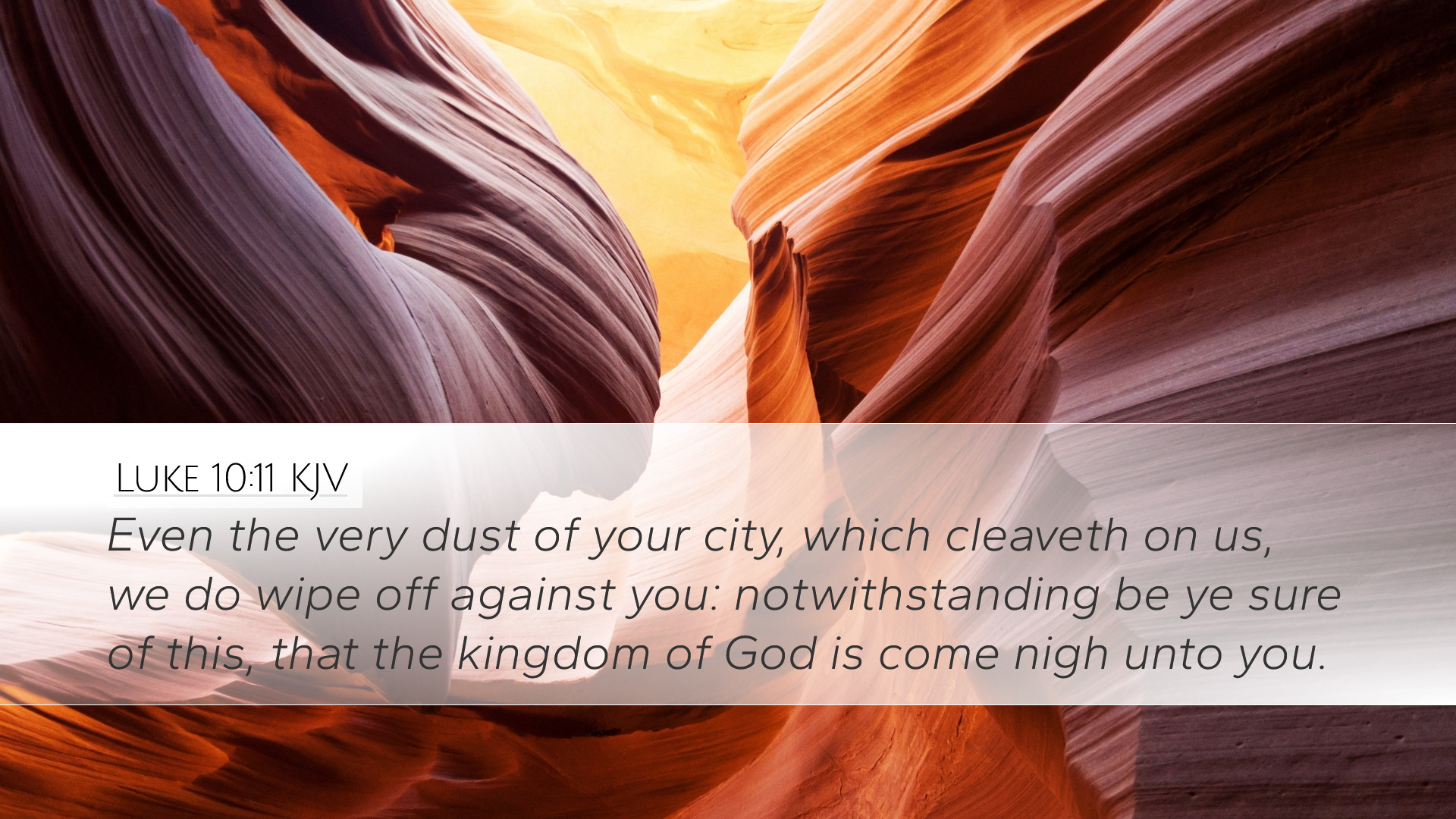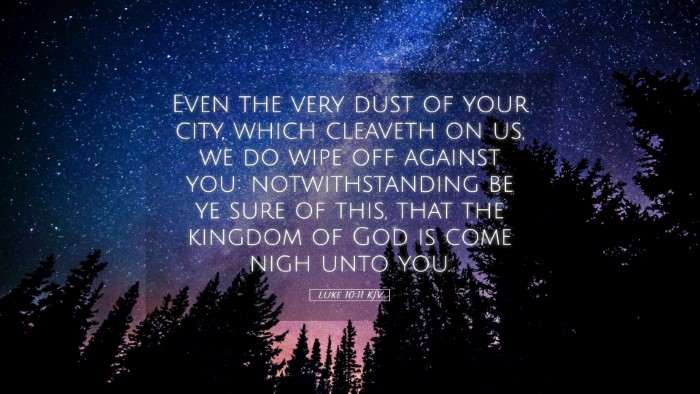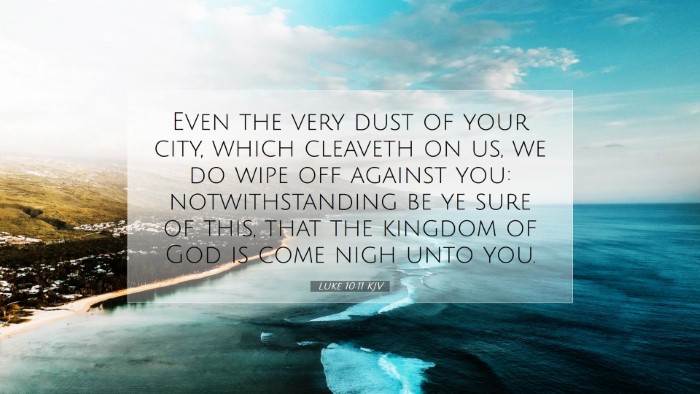Commentary on Luke 10:11
Verse Context: Luke 10:11 reads: "Even the dust of your city, which cleaveth on us, we do wipe off against you: notwithstanding be ye sure of this, that the kingdom of God is come nigh unto you."
Exegetical Insights
This verse forms part of the broader discourse where Jesus equips His disciples for their mission. The preceding verses (Luke 10:1-10) describe Jesus sending out seventy-two of His followers to proclaim the arrival of the Kingdom of God. This verse carries significant weight as it not only conveys a message of divine authority but also a profound warning regarding the repercussions of rejection.
Matthew Henry's Commentary
Matthew Henry highlights the solemnity of this message. He notes that the act of wiping the dust off signifies a symbolic breaking of fellowship with those who reject the Gospel. The dust, in this context, represents the uncleanliness of the rejecting city, emphasizing that the disciples do not take any part of their unrepentant sinfulness with them. Henry elaborates that this act also signifies a profound declaration: that the judgment due to these unrepentant cities is as real and as imminent as the announcement of the coming Kingdom.
Albert Barnes' Commentary
Albert Barnes offers a practical interpretation of the verse, noting the cultural significance of dust in the ancient Israelite context. To dust oneself off was a customary gesture when departing from a place that was considered sinful or defiled. Barnes underlines that this is a serious warning to those who would dismiss the news of salvation. He asserts that the disciples' act of shaking off the dust is not merely a gesture but an indication of the rejection of their message—and thus the rejection of Jesus Himself.
Moreover, he draws attention to the phrase “the kingdom of God is come nigh unto you,” suggesting that this is a declaration of the closeness of God’s reign and the urgency of the response required from the hearers. Those who turn away from this imminent Kingdom, according to Barnes, suffer the consequences of their choice, as true evangelism demands an acknowledgment of the gravity of the situation.
Adam Clarke's Commentary
Adam Clarke signifies the importance of the phrase "kingdom of God" as a pervasive theme in biblical theology. In this verse, Clarke corresponds the rejection of the disciples by the inhabitants of the city to the historical accounts found within the Old Testament, where cities like Sodom faced God's judgment for their rebellion. He underscores that this is not only a rejection of the messengers but a dire insult to God’s sovereign authority. Clarke emphasizes that the shaking off the dust implies a finality, establishing a clear separation between believers and non-believers, indicative of deeper spiritual truths concerning the nature of divine judgment and grace.
Clarke also connects this message to the global mission of the church, asserting that the tendency to dismiss the Gospel remains a significant issue. The call to evangelize must be met with an understanding of both the rewards and the stark warnings that accompany it.
Theological Reflections
As we delve deeper into Luke 10:11, several theological reflections may be drawn:
- Judgment and Accountability: The passage evokes a sense of accountability before God. The act of shaking off dust brings to light the seriousness of rejecting the Gospel. This is a reminder to contemporary believers and ministers that rejection of the Gospel message bears consequences.
- Proclamation of the Kingdom: The declaration that "the kingdom of God is come nigh unto you" signifies not just a message of hope, but also of urgency. Each presentation of the Gospel must be underscored by a recognition of the proximity of God’s kingdom and the transformative power it holds.
- Implications for Evangelism: The rejection experienced by the disciples serves as a precedent for evangelistic endeavors today. Understanding the possible outcomes—acceptance or rejection—can guide how ministries prepare for and respond to varying receptions of the Gospel message.
- Separation from Sin: The ritual of shaking off the dust symbolizes a necessary detachment from sin and its influence. This draws attention to the imperative for believers to maintain holiness and purity amidst a corrupt world.
Conclusion
Luke 10:11 serves as a powerful reminder of the dual nature of the Gospel as both a message of salvation and a pronouncement of judgment. By studying the insights of Matthew Henry, Albert Barnes, and Adam Clarke, we gain a deeper comprehension of the urgency and seriousness of evangelism, as well as a call to holiness in our witness. Pastors, theologians, and students are encouraged to reflect on this passage and its implications for their own ministry and understanding of the Kingdom of God.


